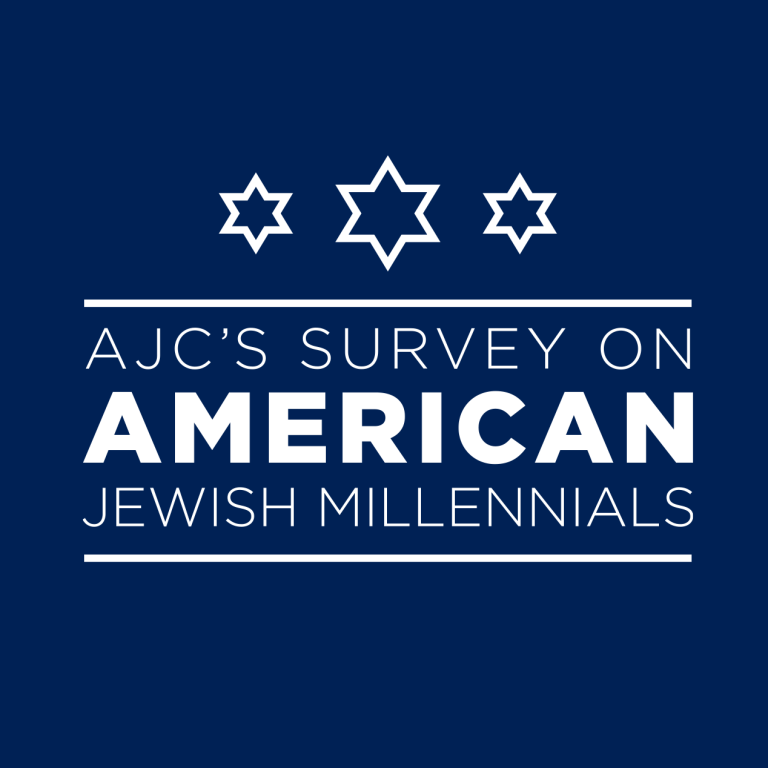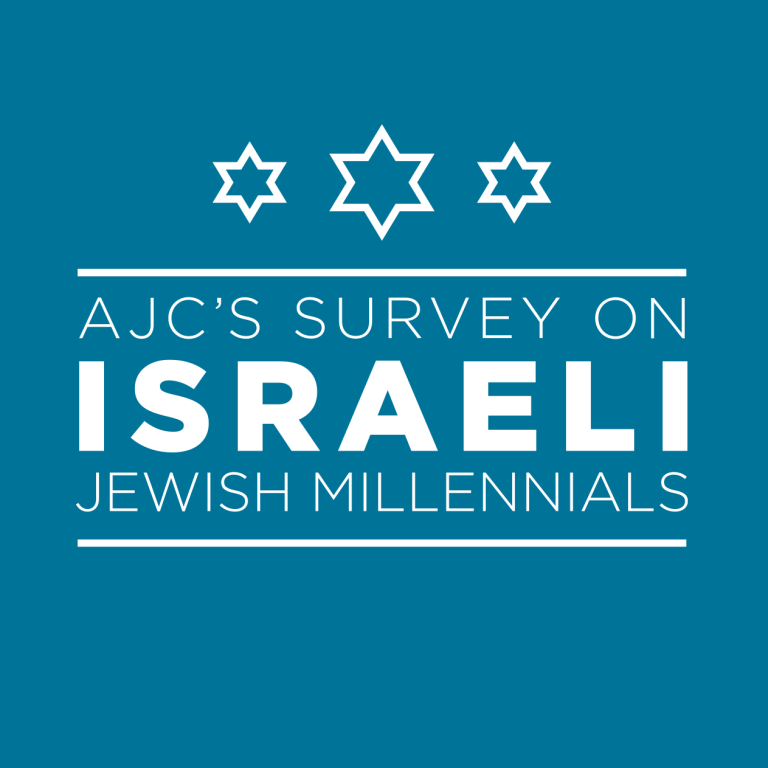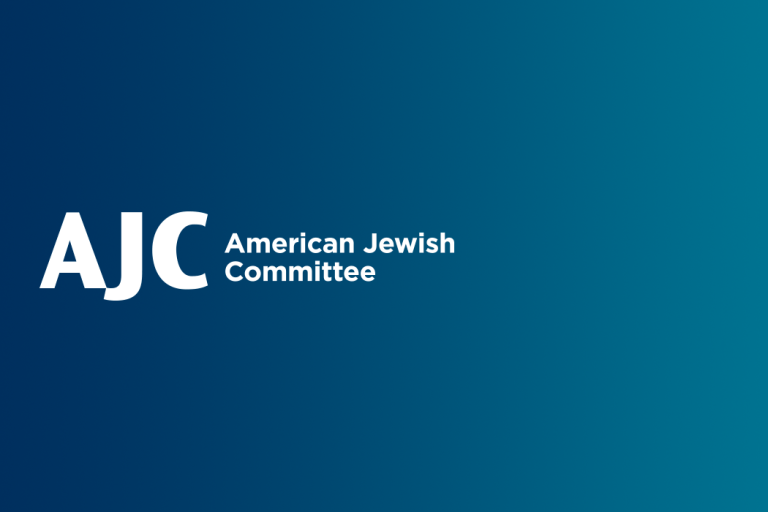April 25, 2022 — New York
American Jewish Committee surveys of U.S. and Israeli Jewish millennials show that Israel-Diaspora relations remain strong, but also indicate points of divergence regarding what role diaspora Jews should have in influencing Israeli polices, antisemitism in the U.S., and the Israeli-Palestinian conflict. The first-ever parallel surveys of Jews, ages 25-40, were conducted by YouGov in the U.S. and Geocartography in Israel for ACCESS, AJC’s young professional program, and AJC’s Contemporary Jewish Life Department.
“Gauging the views of millennials is critical to ensuring strong, enduring ties between the world’s two largest Jewish communities,” said Dana Steiner, Director of AJC ACCESS Global. “Our pioneering surveys provide vital insights into the thinking of emerging leaders engaged in Jewish life that will be critical to strengthen mutual understanding and cooperation between American and Israeli Jews, and also address challenges and opportunities.”
Significant majorities of American (72%) and Israeli (89%) Jewish millennials say it is important that the American Jewish community and Israel maintain close ties, with 48% of Americans and 46% of Israelis saying it is very important.
80% of millennial Israelis and 70% of millennial American Jews think a strong State of Israel is necessary for the survival of the Jewish people, and 81% of Americans and 70% of Israelis think a strong Jewish community outside of Israel is necessary.
Mutual Caring
26% of American Jews, ages 25-40, say they feel a great deal of personal responsibility to help fellow Jews in Israel, 33% feel some, 23% feel not much, and 12% feel none. Among Israeli millennials, 9% feel a great deal of responsibility to help fellow Jews in the U.S., 33% feel some responsibility, 30% feel not much, and 18% feel none.
Looking at how each community perceives Israeli care for Jews in the U.S., 18% of American and 11% of Israeli Jewish millennials think Israelis care about U.S. Jews very much; 22% of Americans and 46% of Israelis care quite a lot; and 35% of Americans and 30% of Israelis care somewhat. In contrast, 17% of Americans and 4% of Israelis think Israelis do not care at all about American Jews.
Regarding perceptions of how American Jews care about Israelis, 27% of American and 17% of Israeli millennials think U.S. Jews care very much about Israel; 34% of Americans and 50% of Israelis think they care quite a lot; 29% of Americans and 21% of Israelis think American Jews care somewhat; and 5% of Americans and 3% of Israelis say they do not care at all.
55% of U.S. Jewish millennials say being connected to Israel is important to their Jewish identity, while 44% do not. In addition, 54% of American Jewish millennials feel emotionally attached to Israel. 26% say their emotional attachment to Israel has grown in recent years, 25% say it has lessened and 48% say it has remained the same.
Impact of Anti-Israel Climate
While the AJC surveys show two communities sharing much in common, also revealed are disturbing trends within the U.S. Jewish community’s younger cohort, including:
- 28% of American Jewish millennials say that anti-Israel climate on campuses or elsewhere has damaged their relationships with friends, while 44% say it has not.
- 26% say it is okay, and 66% say it is not okay, to distance themselves from Israel to better fit in among friends.
- 23% reported that the anti-Israel climate on campus or elsewhere has forced them to hide their Jewish identity. 46% say it has not, and 11% say there is no anti-Israel climate in the U.S.
- 28% say the anti-Israel climate on campus and elsewhere has made them rethink their own commitment to Israel and 54% say it has not.
Israeli Policy Decisions
55% of American and 22% of Israeli Jews, ages 25-40, say it is appropriate for American Jews to try to influence Israeli policy, while 36% of Americans and 69% of Israelis say it is not appropriate.
On which Israeli policies American Jews should try to influence,
- 50% of American and 50% of Israeli millennials chose relations with the United States.
- 23% of American and 25% of Israeli millennials chose religious policy.
- 23% of American and 26% of Israeli millennials chose security.
- 20% of American and 17% of Israeli millennials chose relations with the Palestinians.
- 16% of American and 14% of Israeli millennials chose treatment of minorities and migrants.
- 10% of American and 28% of Israeli millennials chose economic policy.
- 11% of American and 10% of Israeli millennials chose environmental policy.
There also was divergence on the question of Israel considering the wellbeing of American Jews in making policy decisions. 22% of American and 7% of Israeli Jewish millennials said Israel very much should consider the wellbeing of American Jews, 24% of Americans and 26% of Israelis said quite a lot, 31% of Americans and 39% of Israelis said somewhat, and 13% of Americans and 20% of Israelis said not at all.
Antisemitism in United States
53% of American and 76% of Israeli Jewish millennials say the recent wave of antisemitic events in the U.S is the result of demonizing campaigns against Israel and Jews, while 18% of Americans and 6% of Israelis say it is a natural result of Israel’s policies toward the Palestinians. 20% of Americans and 9% of Israelis say it is neither.
Only 9% of Israelis, ages 25-40, think American Jews experience very little antisemitism in their daily lives, while 10% say they experience it very much, 28% quite a lot and 46% somewhat.
Israeli-Palestinian Conflict
Regarding the Israeli-Palestinian conflict, 52% of American and 24% of Israeli Jewish millennials say a viable solution to the conflict is possible.
Among those who say a solution is possible:
- 52% of Israelis and 47% of American Jews favor two independent Israeli and Palestinian states living side by side.
- 23% of Americans and 5% of Israelis favor one binational state with a single government elected.
- 15% of Americans and 19% of Israelis favor Israeli annexation, leading to an extension of Israeli sovereignty in which Palestinians have a unique civil status and are represented by Palestinian municipal leaders.
- 3.5% of Americans and 6% of Israelis favor status quo management of the conflict.
The AJC survey of 1001 Israeli Jews, ages 25-40, was conducted by Geocartograhy from February 14-22, 2022. The AJC survey of 800 American Jews, ages 25-40, was conducted by YouGov between February 9 and March 30, 2022. Additional analysis was provided to AJC by Opinion, Analytics and Communications Strategist Philippe Assouline.





